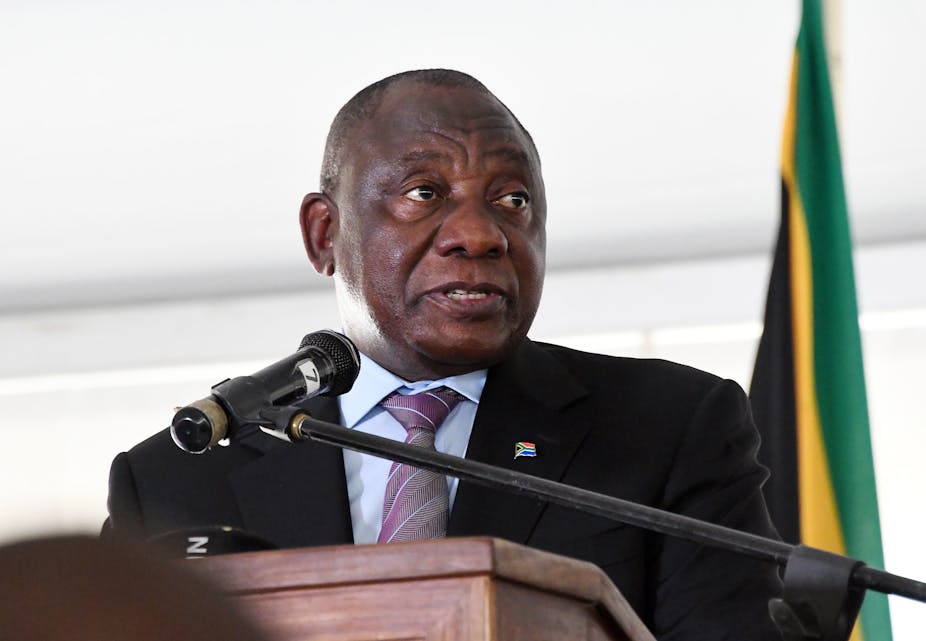South Africa recently hosted a Brics summit. The event attracted international attention because the group has recently begun to emerge as a possible rival against US dominance of world affairs. The US and China lie at the heart of this debate. They are the two biggest trading partners of most African countries and both have strategic interests that they are determined to protect. The Conversation Africa’s politics editor, Thabo Leshilo, asked international relations expert Christopher Isike to explain.
How might Brics affect US-African ties?
Altering diplomatic relations between African countries and the US on account of Brics would have its pros and cons for the continent. Some potential gains from alienating the US would include:
Increased autonomy for African countries in their foreign policy decisions. They might be able to align more closely with their own interests and priorities without the perceived influence of a major global power.
-
The potential of diversifying partnerships and alliances with other countries or regional blocs that Brics presents. This could lead to more economic, political and security relationships, reducing reliance on any single nation.
Stronger regional cooperation and integration. This could unify efforts to address common challenges such as security, infrastructure development and economic growth. Such regional cooperation offers more fertile ground for the African Continental Free Trade Areato thrive.
However, a strained relationship with the US could also come at a cost. Some of the losses would include:
Reduced trade opportunities, foreign direct investment and economic aid, potentially leading to economic setbacks for the continent. Beneficiaries of the Africa Growth and Opportunity Act (Agoa), which provides preferential access to the US market, would be hit the hardest.
The US has been accused of militarising the continent to advance its own interests. But it plays a significant role in supporting peacekeeping efforts and counterterrorism initiatives in various African regions. Alienation could therefore affect security and stability, leaving a void in terms of resources, expertise, and coordination in these critical areas.
Alienating a major global player like the US could also lead to diplomatic isolation for many African countries on the international stage. This could weaken their influence in international organisations, negotiations and decision-making processes.
What if African countries alienated China?
On gains, African countries would be able to diversify their economic and political partnerships by reducing dependence on China. This could lead to increased engagement with other countries and regions, potentially resulting in a more balanced and varied international relations portfolio.
African countries could also enhance their bargaining power in negotiations. This could lead to more favourable terms in trade deals, investment agreements and development projects. Other countries including the US, EU members and Australia might see an opportunity to fill the void.
Some Africans see China’s influence as overly dominant, potentially leading to concerns about sovereignty and autonomy. Alienating China could be seen as a way to assert national interests and prevent over-reliance on a single foreign partner.
That said, African countries can ill afford to alienate China.
China is a major economic partner for many African countries, providing investments, trade opportunities and infrastructure projects. Alienating it could lead to economic setbacks, including reduced trade and foreign direct investment.
Second, China is involved in various infrastructure development projects across Africa. These include roads, railways, ports and energy facilities. A strained relationship with China might hinder the completion of these projects or slow down future infrastructure development, potentially affecting economic growth and connectivity.
Third, China is a significant player in international diplomacy and geopolitics. So, alienating it could lead to reduced influence in global forums where China has a presence. These include the United Nations and various other international organisations. This might limit African countries’ ability to advance their interests on the global stage.
However, it must be noted these gains and losses from alienating either the US or China are speculative and would depend on a wide range of factors. For example, the relationship between African countries and both of these superpowers is multifaceted and complex. Any decision to alienate either of them should involve careful assessment of both the short-term and long-term consequences, and the evolving geopolitical landscape. The trick is for Africa to articulate its own interests and pursue them consistently.
Is there a common African position on the US and China?
African countries have diverse foreign policy priorities and alliances. Their responses to international conflicts can vary widely. Some might choose to align with major powers like the US, China, the European Union or Russia. Others might opt for neutrality or noninterference in the conflicts of other regions.
These strands have played out in the voting patterns on the three UN General Assembly votes to condemn Russia’s invasion of Ukraine.
It would help African countries to have a common position on the Ukraine war. This should be based on its impact on food and energy security in the continent. They should act consistently in line with that common position. They could also have a common position on Brics instead of leaving it entirely to South Africa to define an African agenda for Brics.

